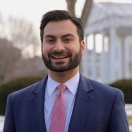
“We are blessed to have the most beautiful landscapes in the world. We have a responsibility to be good stewards of those landscapes for future generations.”
–President Obama, October 10, 2014
President Obama is committed to protecting the air we breathe, the water we drink, and the outdoor spaces we love. That’s why, as he noted in his State of the Union address this year, the Obama Administration has protected more public lands and waters than any administration in history. His Budget Request for Fiscal Year 2016, released today reinforces those commitments, supporting key measures focused on conserving America’s bountiful natural resources and ensuring that all Americans can enjoy them – now and in the future.
That means ensuring that our wondrous national parks are upgraded and maintained to last another century and more. Nothing better captures America’s natural beauty than places like the Grand Canyon, Yellowstone, or Yosemite. That’s why, to mark the 100th birthday of the National Park Service, the budget invests $859 million (including $300 million in mandatory funds) in 2016 to allow NPS over the next 10 years for restoring and maintaining key park facilities like visitor centers, trails and historic structures at our greatest historical, cultural, and national treasures. The National Park Centennial Initiative will also leverage private donations, increase volunteer opportunities in parks and get more young people exploring our public lands and waters.
All Americans deserve the chance to enjoy the outdoors, even if they can’t get to a national park. That’s one of the reasons the President has been steadfast in his support for the Land and Water Conservation Fund (LWCF), a program that has benefited communities in every county in the country over its 50 year history. The Fund reinvests revenues from offshore oil and gas development to support LWCF programs that enhance existing parks, conserve treasured landscapes, preserve historic sites like Civil War battlefields, and open land for all sorts of public uses – from hunting, fishing and hiking to establishing much-needed parks in urban areas. President Obama has advocated for consistent and reliable funding for LWCF programs, and his Budget proposes full funding of LWCF at $900 million annually – the amount equal to the oil and gas receipts that Congress long ago directed be deposited in the Fund to support these important public programs.
As the President continues to expand opportunities for Americans to enjoy the outdoors, he recognizes the need to protect the health of our lands and waters. And that’s impossible without addressing the global threat of climate change. His budget keeps us on a path to take aggressive action to curb carbon pollution and prepare communities for the impacts of climate change. It invests in programs to reduce greenhouse gas emissions from conventional energy development and invests roughly $100 million at the Interior Department to support renewable energy development on our public lands and waters. It also supports steps to strengthen our natural resources in the context of a changing climate. For example, the budget treats suppression of the most severe fire activity the same as we treat other natural disasters. The fix would provide funding certainty in future years for firefighting costs and allow us to invest in programs that will more effectively promote fire risk reduction and long-term forest and rangeland health and preservation.
The budget includes increased support for other measures to strengthen our natural resources and protect our lands and waters. Here are just a few more:
- Restoring Iconic Ecosystems: The budget follows through on the President’s commitment to restore our nation’s most important watersheds and ecosystems. Building on the Obama Administration’s record investment of more than $1.6 billion in the Everglades, the budget proposes $240 million to continue restoration efforts. It also includes $250 million for the Great Lakes Restoration Initiative, $70 million to meet pollution reduction goals in the Chesapeake Bay, and investments in the Gulf Coast and Puget Sound.
- Supporting Private Landowners: No one understands the value of our forests and working lands better than the landowners who earn their livelihood from them. The President is committed to supporting these stewards, and his budget seeks to make the conservation easement tax deduction permanent, so farmers and ranchers have options to get the support they need and the lands they work aren’t converted for other uses. The Budget also provides $1.35 billion to help private landowners and agricultural producers implement a wide range of conservation practices.
- Advancing Science and Tools: The budget also increases funding to advance science and develop tools to strengthen our natural resources. That includes $108 million for research related to the role of our lands and forests as carbon sinks, $30 million to expand NOAA’s ocean acidification research program, and $415 million for the Department of the Interior’s important work to study climate variability and support resilience of our public lands and waters.
Mike Boots leads the White House Council on Environmental Quality.
Ali Zaidi is the Associate Director for Natural Resources, Energy, and Science at the White House Office of Management and Budget.


